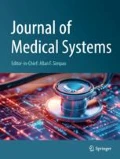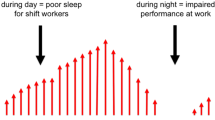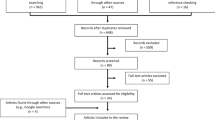Abstract
The purpose of the present study was to explore the relation of work-related risk factors and well-being among healthcare workers and the impact on patient safety, using the Health and Work Survey (INSAT) and Mental Health Continuum - Short Form (MHC-SF). A sample of 361 Portuguese healthcare workers participated in this study. The results indicate some significant work-related risk factors: for emotional well-being, Impossible to express myself (β = −0.977), Not having recognition by superiors (β = −1.028) and Have to simulate good mood and/or empathy (β = −1.007); for social well-being, Exposed to the risk of sexual discrimination (β = −2.088), Career progress is almost impossible (β = −1.518), and Have to hide my emotions (β = −2.307); finally for psychological well-being Exposed to the risk of sexual discrimination (β = −2.153), Career progress is almost impossible (β = −1.377), and Have to simulate good mood and/or empathy (β = −3.201). The results showed high levels of well-being despite the exposure of several risk factors at workplace. Regarding the work-related risk factors, the study showed that most of the participants are exposed to several risk factors at workplace (ranging from environmental risk factors, biological to physical), although psychosocial risk factors (work relations with superiors and colleagues, employment relations, and emotional demands) are the ones that most impact on well-being.
Similar content being viewed by others
References
Roland-Lévy, C., Lemoine, J., and Jeoffrion, C., Health and well-being at work: The hospital context. Revue Européenne de Psychologie Appliquée/European Review of Applied Psychology 64(2):53–62, 2014. https://doi.org/10.1016/j.erap.2014.01.002.
Stansfeld, S. A., and Candy, B., Psychosocial work environment and mental health—a meta-analytic review. Scandinavian Journal of Work, Environment & Health 6:443–462, 2006. https://doi.org/10.5271/sjweh.1050.
WHO, Health Impact of Psychosocial Hazards at Work, An Overview. Geneva: World Health Organization, 2010.
Giurgiu, D. I., Jeoffrion, C. et al., Psychosocial and occupational risk perception among health care workers: a Moroccan multicenter study. BMC Research Notes 8(1):408, 2015. https://doi.org/10.1186/s13104-015-1326-2.
Giurgiu, D. I., Jeoffrion, C. et al., Wellbeing and occupational risk perception among health care workers: a multicenter study in Morocco and France. Journal of Occupational Medicine and Toxicology 11(1):20, 2016. https://doi.org/10.1186/s12995-016-0110-0.
Commission, E., Occupational health and safety risks in healthcare sector - Guide to prevention and good practice S.A.a.I. Directorate-General dor Employment, Editor, Publications Office of the European Union: Luxemburg, 275. 2011, https://doi.org/10.2767/27263.
Ryff, C. D., Happiness is everything, or is it? Explorations on the meaning of psychological well-being. Journal of Personality and Social Psychology 57(6):1069–1081, 1989. https://doi.org/10.1037/0022-3514.57.6.1069.
Keyes, C. L. M., Social Well-Being. Social Psychology Quarterly 61(2):121–140, 1998. https://doi.org/10.2307/2787065.
Keyes, C. L. M., The Mental Health Continuum: From Languishing to Flourishing in Life. Journal of Health and Social Behavior 43(2):207–222, 2002. https://doi.org/10.2307/3090197.
Deci, E. L., and Ryan, R. M., Hedonia, eudaimonia, and well-being: an introduction. Journal of Happiness Studies 9(1):1–11, 2008. https://doi.org/10.1007/s10902-006-9018-1.
Juarez, F., El concepto de salud: Una explicación sobre su unicidad, multiplicidad y los modelos de salud. International Journal of Psychological Research 4(1):70–79, 2011.
Massimini, F., and Delle Fave, A., Individual development in a bio-cultural perspective. American Psychologist 55(1):24–33, 2000. https://doi.org/10.1037/0003-066X.55.1.24.
Diener, E., Subjective well-being: The science of happiness and a proposal for a national index. American Psychologist 55(1):34–43, 2000. https://doi.org/10.1037/0003-066X.55.1.34.
Pavot, W., and Diener, E., The Satisfaction With Life Scale and the emerging construct of life satisfaction. The Journal of Positive Psychology 3(2):137–152, 2008. https://doi.org/10.1080/17439760701756946.
Van Laar, D., Edwards Julian, A., and Easton, S., The Work-Related Quality of Life scale for healthcare workers. Journal of Advanced Nursing 60(3):325–333, 2007. https://doi.org/10.1111/j.1365-2648.2007.04409.x.
Marôco, J., Marôco, A. L. et al., Burnout em Profissionais da Saúde Portugueses: Uma Análise a Nível Nacional. Acta Med Port 29(1):24–30, 2016.
Taghinejad, H., Suhrabi, Z. et al., Occupational Mental Health: A Study of Work-Related Mental Health among Clinical Nurses. Journal of Clinical and Diagnostic Research: JCDR 8(9):WC01–WC03, 2014. https://doi.org/10.7860/JCDR/2014/8247.4835.
Goetz, K., Berger, S. et al., How psychosocial factors affect well-being of practice assistants at work in general medical care? – a questionnaire survey. BMC Family Practice 16(1):166, 2015. https://doi.org/10.1186/s12875-015-0366-y.
Dhaini, S. R., Zúñiga, F. et al., Care workers health in Swiss nursing homes and its association with psychosocial work environment: A cross-sectional study. International Journal of Nursing Studies 53:105–115, 2016. https://doi.org/10.1016/j.ijnurstu.2015.08.011.
Hsu, M.-Y., and Kernohan, G., Dimensions of hospital nurses’ quality of working life. Journal of Advanced Nursing 54(1):120–131, 2006. https://doi.org/10.1111/j.1365-2648.2006.03788.x.
Kohn, L., J. Corrigan, and M. Donaldson, To Err Is Human: Building a Safer Health System. Committee on Quality of Health Care in America, editor: Institute of Medicine. National Academy of Sciences. 2000.
Baylina, P., and Moreira, P., Challenging healthcare-associated infections: a review of healthcare quality management issues. Journal of Management & Marketing in Healthcare 4(4):254–264, 2011. https://doi.org/10.1179/175330311X13016677137770.
Baylina, P., and Moreira, P., Healthcare-associated infections – on developing effective control systems under a renewed healthcare management debate. International Journal of Healthcare Management 5(2):74–84, 2012. https://doi.org/10.1179/2047970012Z.00000000018.
Johnson, K., Keeping patients safe: an analysis of organizational culture and caregiver training. Journal of Healthcare Management / American College of Healthcare Executives 49(3):171–178; discussion 178-9, 2004.
Chen, I. C., Ng, H.-F., and Li, H.-H., A multilevel model of patient safety culture: cross-level relationship between organizational culture and patient safety behavior in Taiwan's hospitals. The International Journal of Health Planning and Management 27(1):e65–e82, 2012. https://doi.org/10.1002/hpm.1095.
Johnson, S. J., O'Connor, E. M. et al., The relationships among work stress, strain and self-reported errors in UK community pharmacy. Research in Social and Administrative Pharmacy 10(6):885–895, 2014. https://doi.org/10.1016/j.sapharm.2013.12.003.
James, K. L., Barlow, D. et al., Incidence, type and causes of dispensing errors: A review of the literature. International Journal of Pharmacy Practice 17(1):9–30, 2010. https://doi.org/10.1211/ijpp.17.1.0004.
Holden, R. J., Patel, N. R. et al., Effects of mental demands during dispensing on perceived medication safety and employee well-being: A study of workload in pediatric hospital pharmacies. Research in Social and Administrative Pharmacy 6(4):293–306, 2010. https://doi.org/10.1016/j.sapharm.2009.10.001.
Feuerberg, M., Appropriateness of Minimum Nurse Staffing Ratios in Nursing Homes. Report to Congress. Baltimore: Health Care Financing Administration, 2000.
Rogers, A. E., Hwang, W.-T. et al., The Working Hours Of Hospital Staff Nurses And Patient Safety. Health Affairs 23(4):202–212, 2004. https://doi.org/10.1377/hlthaff.23.4.202.
Shanafelt, T. D., Balch, C. M. et al., Burnout and Medical Errors Among American Surgeons. Annals of Surgery 251(6), 2010.
Landrigan, C. P., Rothschild, J. M. et al., Effect of Reducing Interns' Work Hours on Serious Medical Errors in Intensive Care Units. New England Journal of Medicine 351(18):1838–1848, 2004. https://doi.org/10.1056/NEJMoa041406.
Poghosyan, L., Clarke, S. P. et al., Nurse Burnout and Quality of Care: Cross-National Investigation in Six Countries. Research in Nursing & Health 33(4):288–298, 2010. https://doi.org/10.1002/nur.20383.
Michie, S., and Williams, S., Reducing work related psychological ill health and sickness absence: a systematic literature review. Occupational and Environmental Medicine 60(1):3–9, 2003. https://doi.org/10.1136/oem.60.1.3.
Loeppke, R., Boldrighini, J. et al., Interaction of Health Care Worker Health and Safety and Patient Health and Safety in the US Health Care System: Recommendations From the 2016 Summit. JOEM 59(8):803–813, 2017.
Yassi, A., and Hancock, T., Patient Safety - Worker Safety: Building a Culture of Safety to Improve Healthcare Worker and Patient Well-Being. Healthcare Quarterly 8(Sp):32–38, 2005.
Barros, C., Carnide, F. et al., Will I be able to do my work at 60? An analysis of working conditions that hinder active ageing. WORK: A Journal of Prevention, Assessment & Rehabilitation 51:579–590, 2015. https://doi.org/10.3233/WOR-152011.
Silva, C., Barros, C. et al., Prevalence of back pain problems in relation to occupational group. International Journal of Industrial Ergonomics 52:52–58, 2016. https://doi.org/10.1016/j.ergon.2015.08.005.
Barros, C., Cunha, L. et al., Development and Validation of a Health and Work Survey Based on the Rasch Model among Portuguese Workers. Journal of Medical Systems 41(5):79, 2017. https://doi.org/10.1007/s10916-017-0727-2.
Monte, K., Fonte C., and S. Alves, Saúde mental numa população não clínica de jovens adultos: Da psicopatologia ao bem-estar Revista Portuguesa de Enfermagem de Saúde Mental. 2. 2015.
Fonte, C., C. Ferreira, and S. Alves, Estudo da saúde mental em jovens adultos. Relações entre psicopatologia e bem-estar. Psique, 57-74. 2017.
Huppert Felicia, A., The State of Wellbeing Science. Wellbeing, 2014. https://doi.org/10.1002/9781118539415.wbwell036.
Yepes-Baldó, M., Romeo, M., and Berger, R., Relationship of health workers with their organization and work: a cross-cultural study. Rev Saude Publica 5(18), 2016. https://doi.org/10.1590/S1518-8787.2016050006285.
Bagdasarov, Z., and Connelly, S., Emotional labor among healthcare professionals: the effects are undeniable. Narrat Inq Bioeth 3(2):125–129, 2013. https://doi.org/10.1353/nib.2013.0040.
Hämmig, O., Health and well-being at work: The key role of supervisor support. SSM - Population Health 3:393–402, 2017.
Letellier, M.-C., Duchaine, C. S. et al., Evaluation of the Quebec Healthy Enterprise Standard: Effect on Adverse Psychosocial Work Factors and Psychological Distress. International Journal of Environmental Research and Public Health 15(3):426, 2018. https://doi.org/10.3390/ijerph15030426.
Clot, Y., Travail et pouvoir d’agir. Paris: PUF, 2008.
Work, E. A.f. S.a. H.a., Well-being at work: creating a positive work environment - Literature Review. Publications Office of the European Union: Luxembourg., 2013. https://doi.org/10.2802/52064.
Balducci, C., Avanzi, L., and Fraccaroli, F., Emotional demands as a risk factor for mental distress among nurses. Med Lav. 105(2):100–108, 2014.
Scheibe, S., Stamov-Roßnagel, C., and Zacher, H., Links Between Emotional Job Demands and Occupational Well-being: Age Differences Depend on Type of Demand. Work, Aging and Retirement 1(3):254–265, 2015. https://doi.org/10.1093/workar/wav007.
Scheepers, R. A., Boerebach, B. C. M. et al., A Systematic Review of the Impact of Physicians’ Occupational Well-Being on the Quality of Patient Care. International Journal of Behavioral Medicine 22(6):683–698, 2015. https://doi.org/10.1007/s12529-015-9473-3.
Rocha, A., and Freixo, J., Information Architecture for Quality Management Support in Hospitals. J Med Syst 39(125), 2015. https://doi.org/10.1007/s10916-015-0326-z.
Author information
Authors and Affiliations
Corresponding author
Ethics declarations
Conflict of interest
Authors declares that they have no conflict of interest.
Ethical approval
All procedures performed in studies involving human participants were in accordance with the ethical standards of the institutional and/or national research committee and with the 1964 Helsinki declaration and its later amendments or comparable ethical standards.
Informed Consent
Informed consent was obtained from all individual participants included in the study.
Additional information
This article is part of the Topical Collection on Education & Training
Rights and permissions
About this article
Cite this article
Baylina, P., Barros, C., Fonte, C. et al. Healthcare Workers: Occupational Health Promotion and Patient Safety. J Med Syst 42, 159 (2018). https://doi.org/10.1007/s10916-018-1013-7
Received:
Accepted:
Published:
DOI: https://doi.org/10.1007/s10916-018-1013-7




